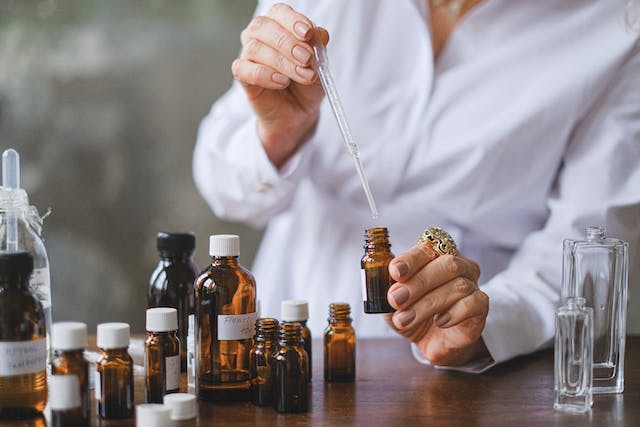
When it comes to creating the perfect spa experience, essential oils play a crucial role. These aromatic extracts from plants can elevate relaxation and promote overall well-being. However, not all essential oils are created equal. To ensure you’re offering your spa clients the best, follow these 10 essential tips for selecting high-quality essential oils.
1. Prioritize Purity
- Opt for oils labeled as “100% pure” or “pure essential oil” to ensure no additives or dilution. “100% pure” or “pure essential oil” labels signify that the oil has not been adulterated or diluted with other substances. This means you are getting the full spectrum of the plant’s aromatic compounds and therapeutic properties. These labels indicate transparency and commitment from the manufacturer. It’s a clear message to consumers that the product is what it claims to be. Some essential oils on the market may contain additives, solvents, or other synthetic compounds to enhance fragrance or volume. These additives can dilute the purity of the oil and may cause adverse reactions in individuals with sensitivities.
2. Investigate the Source
- Seek essential oils sourced from their native regions, as they tend to be of higher quality and authenticity. When it comes to selecting essential oils for your spa and wellness offerings, there’s a valuable principle to keep in mind: authenticity. Essential oils sourced from their native regions tend to embody a higher degree of quality and authenticity. This is because plants grown in their indigenous habitats are exposed to the ideal environmental conditions, including soil type, climate, and altitude. As a result, they produce a more genuine and potent aromatic essence. Native sourcing not only ensures that you’re getting the true character of the plant but also supports sustainable cultivation practices, benefiting local communities and ecosystems. By choosing oils from their places of origin, you’re enriching the spa experience for your clients with scents that are not only authentic but also deeply rooted in tradition and culture.
3. Know the Botanical Names
- Always check for the botanical name of the essential oil to avoid confusion with similar-sounding oils.
4. Understand Extraction Methods
- Different extraction methods, such as steam distillation and cold-pressing, can affect an oil’s quality and aroma. The choice of extraction method is a critical factor in determining the overall quality and aroma of essential oils. Various techniques, such as steam distillation, cold-pressing, and solvent extraction, can significantly influence the final product. For instance, steam distillation, the most common method, is gentle and effective for most plant materials, preserving the delicate fragrances and therapeutic properties. In contrast, cold-pressing is primarily used for citrus oils and offers a vibrant, zesty aroma. It’s essential to understand these extraction methods and select the one that aligns with your spa’s desired scent profile and intended therapeutic benefits.
5. Demand Testing and Certification
- Look for brands that provide batch-specific testing results, like GC/MS reports, to verify the oil’s purity and chemical composition.
6. Consider the Grade
- While there is no standardized grading system, aim for oils labeled as therapeutic-grade or food-grade for better quality. While there’s no universally recognized grading system for essential oils, looking for oils labeled as ‘therapeutic-grade’ or ‘food-grade’ can serve as a valuable guideline for quality. These designations often indicate that the oils meet specific standards for purity and suitability for various applications, whether it’s therapeutic use in aromatherapy or even ingestion in culinary creations. However, it’s important to note that these terms are not regulated, so it’s wise to pair them with other quality-assurance factors like brand reputation and testing documentation for a more comprehensive evaluation of an oil’s quality.
7. Be Cautious of Low Prices
- High-quality essential oils are an investment. Beware of products that seem too good to be true in terms of price.
8. Pay Attention to Packaging
- Protect oils from degradation by choosing dark, glass containers with airtight caps that shield them from light and heat.
9. Trust Reputable Brands
- Select oils from well-established brands with a reputation for producing high-quality products. Customer reviews and recommendations can guide your choice.
10. Follow Your Nose and Personal Preference
- In the end, the best essential oil for your spa is one that aligns with your intended use and your clients’ preferences. Always ensure the aroma is pleasant and authentic.
By following these 10 tips, you can confidently select and offer the finest essential oils for your spa, enhancing the relaxation and rejuvenation your clients seek. High-quality essential oils are a must-have for any spa and wellness experience, and the right choices will make a significant difference in the overall satisfaction of your clients.




